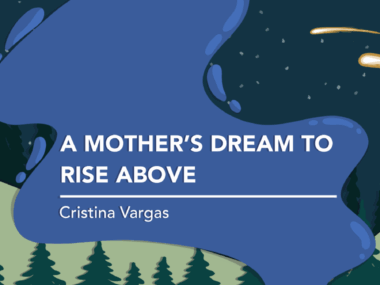For Families Fighting Batten Disease, Quality of Life Is Critical
Written by |

Doctors, scientists, and patient organizations like Taylor’s Tale — the nonprofit I co-founded to advance breakthrough treatments for Batten disease and advocate for life-changing public policies — invest significant time and resources into the hunt for lifesaving treatments. After all, CLN1 disease, or Batten disease, is universally fatal, like many other rare diseases.
Since 2007, Taylor’s Tale has made significant contributions to help advance important work in gene therapy, enzyme replacement therapy, and small-molecule drug therapy. I’m proud that soon, a gene therapy clinical trial for CLN1 will begin because my family had a dream.
Clinical guidance: A gaping hole
Yet this critical work fails to address a massive problem: With a few exceptions, the Batten disease community lacks the clinical management guidance needed to improve patients’ quality of life.
For 12 years, I watched my younger sister, Taylor, suffer because even some of the region’s best doctors had never seen her condition in one of their own patients. And as her symptoms worsened in the later stages, the best approach to intractable seizures, dietary concerns, and other issues was often anyone’s best guess.
I remember the day my sister’s wheelchair arrived, and the last time she swallowed food. I remember the seizures that landed her in the hospital, and all of the times my family said goodbye to her in the days before she took her last breath.
Unfortunately, we experienced firsthand the power of a degenerative disease to wreck patients’ quality of life. Consider the broad-reaching effects of CLN1 disease, with symptoms such as:
- Developmental delays
- Psychomotor regression
- Seizures
- Ataxia
- Movement disorders
- Loss of speech
- Acquired microcephaly
- Visual impairment
- Premature death
International partners in progress
That’s why Taylor’s Tale led an international effort to create a clinical care consensus statement for CLN1 disease. We brought clinicians, researchers, and patient advocates together, organizing a live meeting and administering a remote survey. Perspectives from families helped ensure the needs of those fighting the battle on the front lines were considered.
In April, this effort led to the publication of a paper, “Management of CLN1 Disease: International Clinical Consensus,” in the journal Pediatric Neurology. My mother, Sharon King, a co-founder of Taylor’s Tale, is listed among the study’s co-authors.
That an applied piano major and former music teacher appears alongside internationally recognized doctors, scientists, and other subject matter experts is a testament to the sheer will of a parent whose child has been taken from her. My baby sister died almost three years ago, but if anything, Mom’s determination to beat Batten disease has only grown.
Like the treatment Taysha Gene Therapies will take to the finish line, the clinical care guidelines published this spring are my sister’s legacy — not her life. Taylor will never benefit from the progress she inspired. But like the imprint she left on this big sister’s heart, her story continues to drive lasting change.
***
Note: Batten Disease News is strictly a news and information website about the disease. It does not provide medical advice, diagnosis, or treatment. This content is not intended to be a substitute for professional medical advice, diagnosis, or treatment. Always seek the advice of your physician or other qualified health provider with any questions you may have regarding a medical condition. Never disregard professional medical advice or delay in seeking it because of something you have read on this website. The opinions expressed in this column are not those of Batten Disease News or its parent company, Bionews, and are intended to spark discussion about issues pertaining to Batten disease.






Leave a comment
Fill in the required fields to post. Your email address will not be published.